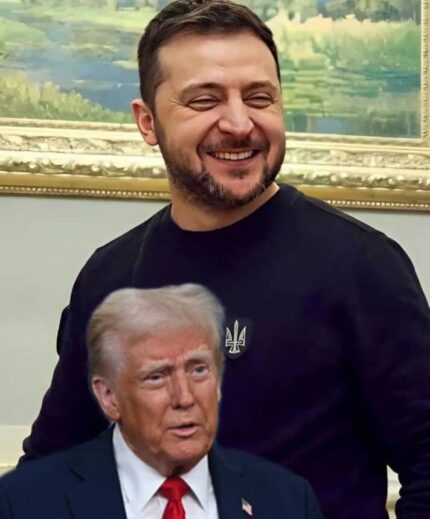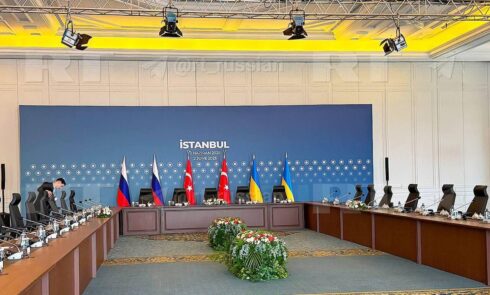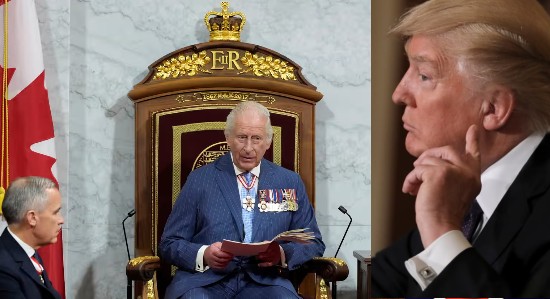Ukraine and the United States have reached a preliminary agreement to jointly develop Ukraine’s vast reserves of rare earth minerals, a significant economic and strategic move for both nations. The official signing is set to take place this Friday during President Volodymyr Zelenskyy’s visit to Washington.
Under the terms of the deal, a fund will be established where Ukraine will contribute 50% of its mineral revenue, minus operating costs, until the total contributions reach $500 billion. This marks a shift from the U.S.’s initial demand for an outright $500 billion share of Ukraine’s mineral proceeds. While the agreement enhances economic cooperation, it notably lacks the security guarantees Ukraine has long sought from Washington.
The minerals deal is seen as part of a broader effort to strengthen United States.-Ukraine economic ties while also enabling Washington to recover some of the massive financial aid it has provided to Kyiv during its ongoing war with Russia. However, critics argue that without explicit defense assurances, Ukraine may find itself economically bound to the U.S. without the military support it desperately needs.
Trump’s Perspective: “America First” and Financial Recoupment
President Donald Trump has positioned the agreement as a way for the U.S. to reclaim taxpayer money spent on aiding Ukraine. Speaking to reporters, he emphasized that Ukraine would gain military equipment and “the right to fight on,” though details on continued arms shipments remain unclear.
“What we’re doing is now we’re saying, look, we want to be secured,” Trump said. “The American taxpayer now is going to get their money back, plus.” He also suggested that U.S. aid during his administration would come with financial returns, marking a departure from traditional American foreign aid policies that often prioritize geopolitical strategy over direct economic gain.
Trump has been vocal about his stance that Ukraine must contribute to its own defense costs, rather than rely indefinitely on U.S. assistance. The agreement underscores his transactional approach to foreign policy, raising questions about the future ofUnited States. support for Kyiv and broader implications for global alliances.
Security Guarantees Absent, Raising Alarms in Kyiv
One of the major criticisms of the agreement is its failure to include binding United States security guarantees. Sources familiar with the deal indicate that while the U.S. reiterates its desire for Ukraine to remain “free, sovereign, and secure,” no commitments regarding military aid or continued weapons supply have been included in the draft.
Ukraine has been pushing for long-term security assurances as part of any major agreement with the U.S., particularly given the ongoing Russian invasion. The absence of such guarantees has fueled concerns that Washington’s priority is economic benefit rather than Ukraine’s long-term security.
Zelensky, who has repeatedly warned against any rushed settlement with Moscow, has indicated that Ukraine remains open to further negotiations to secure additional security commitments. Meanwhile, European nations are reportedly wary that Trump’s approach could lead to concessions that weaken Ukraine’s position in any future peace talks with Russia.
Geopolitical Ramifications: Europe and Russia Respond
The agreement has prompted strong reactions from both Europe and Russia. European nations, many of whom have been staunch supporters of Ukraine, are alarmed at the possibility of United States-Russia discussions that could reshape the balance of power in Eastern Europe. Some European leaders have indicated a willingness to send peacekeeping forces to Ukraine, but Moscow has flatly rejected any NATO presence in the region.
Trump has stated that “some form of peacekeeping” will be necessary if a resolution is reached, but the specifics of such a plan remain vague. Meanwhile, Russian President Vladimir Putin has made a surprising counteroffer, suggesting that Moscow could provide the U.S. with access to rare earth minerals, including those from Russian-occupied Ukrainian territories.
Ukraine and its European allies fear that direct United States-Russia negotiations could leave Kyiv sidelined, with decisions about its future being made without its input. Ukrainian officials have emphasized that their sovereignty over their resources must remain intact, despite any economic agreements with foreign powers.
Ukraine’s Critical Mineral Reserves and Economic Potential
Ukraine possesses significant reserves of minerals vital to modern technology, including:
19 million tonnes of graphite, essential for electric vehicle batteries
One-third of Europe’s lithium deposits, a key component in battery production
7% of global titanium supply, used in aerospace and energy sectors
Significant deposits of rare earth metals, crucial for electronics, defense, and renewable energy
Despite the war, Ukraine has continued to develop its mineral sector, seeing it as a key part of post-war reconstruction. Ukrainian officials have hinted at a broader strategy where foreign investment, including from the U.S., could play a crucial role in rebuilding the nation.
However, a major challenge remains: roughly $350 billion worth of Ukraine’s mineral wealth is currently in Russian-occupied territories. The ability to fully capitalize on these resources will depend on Ukraine’s ability to reclaim its land, raising further concerns about the lack of security guarantees in the United States agreement.
A Deal with High Stakes
The United States-Ukraine minerals deal is a landmark agreement that could redefine economic relations between the two nations. While it provides a financial framework for utilizing Ukraine’s vast resources, it leaves key security concerns unresolved.
For the United States, the agreement aligns with Trump’s “America First” policy, ensuring financial returns from aid provided to Kyiv. For Ukraine, the deal represents both an economic opportunity and a potential risk, as it remains locked in a brutal war with Russia without the explicit defense guarantees it seeks.
As Zelensky and Trump prepare to sign the agreement, the geopolitical implications continue to unfold. Whether this deal strengthens Ukraine or leaves it vulnerable to economic dependency and geopolitical maneuvering will largely depend on future negotiations and the evolving United States approach to global security.














